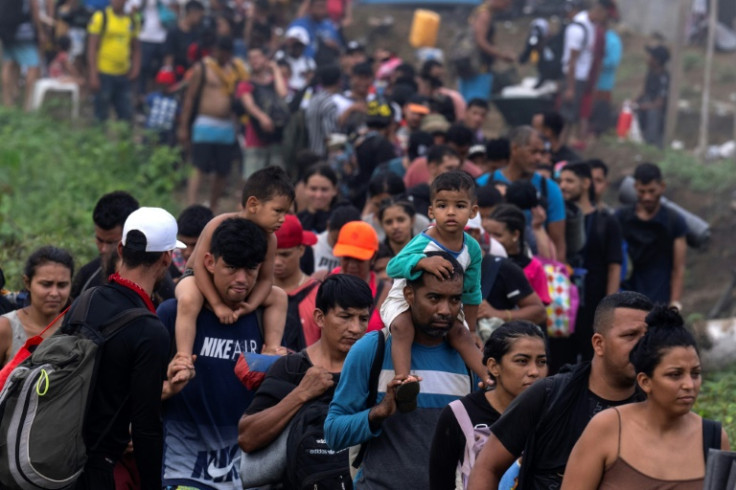
Nearly half of migrants from Latin America and the Caribbean reported experiencing gun-related violence before arriving in the United States, a new University of Michigan study reveals. The survey, conducted between March 2022 and August 2023, sheds light on the traumatic conditions driving migration and the mental health challenges many face upon arrival.
Of the 321 participants, 48% reported being threatened with a firearm. Men were particularly vulnerable, with a 32% higher likelihood of experiencing such threats compared to women. Most of these incidents occurred in the migrants' home countries (71%), although some reported threats during their journey (16%) or both (13%). Men from Honduras, Venezuela, and El Salvador were among the most affected, with incidents often tied to robberies, extortions, and, in some cases, threats from authorities or intimate partners.
The study also found a strong link between firearm threats and post-traumatic stress disorder (PTSD). One-third of respondents showed symptoms of PTSD, and those who reported firearm threats were significantly more likely to display severe signs of trauma.
Lead author Eugenio Weigend Vargas called the findings alarming, particularly in regions where violence and U.S.-origin firearms are pervasive. "The high number of individuals that have experienced firearm violence in some capacity is something that should be considered when developing policies and having conversations around immigration," he said.
Laura Vargas, a senior study author, emphasized the need for trauma-informed care at U.S. entry points. "Understanding how firearm violence specifically plays a role in both migration and mental health is critical to informing how we care for these newcomers clinically and in our community," she said.
The survey also highlighted the reasons behind firearm threats, with 73% tied to violent crimes such as robberies, extortions, and kidnappings. However, less-discussed threats also emerged: 9% involved political repression or coercion by authorities, and others were related to intimate partner violence or being forced into silence about crimes.
The study's findings extend beyond personal trauma, pointing to systemic issues. A significant portion of firearms recovered in Central America and the Caribbean were traced back to the United States, raising questions about the role of international arms trafficking in fueling violence. The report suggests policymakers address this issue through stricter export controls and improved end-user agreements for legally exported weapons.
These revelations come as the U.S. prepares for potential changes in immigration policy under President-elect Donald Trump, whose pledge to carry out the largest deportation effort in U.S. history has sparked concerns among immigrants, along with plans to "supercharge" denaturalization efforts, as vowed by Stephen Miller, Trump's incoming deputy chief of staff.
Migration experts warn that his renewed hardline stance on immigration could inadvertently benefit organized crime. By further restricting already limited legal pathways, experts say, Trump's policies will push more migrants toward human traffickers and smugglers—many of whom are connected to criminal networks.
People-smuggling profits now rival drug trafficking revenues. Annual revenues from the human-smuggling business are estimated to range between $4 billion and $12 billion. Migrant smuggling now ranks alongside drugs and extortion as a top income stream for crime groups across Mexico, Central, and South America, with around 80% of undocumented migrants relying on smugglers to navigate dangerous routes to the U.S.
Meanwhile, organizations like Catholic Charities of the Rio Grande Valley are working to support migrants upon arrival, the Border Reporter shows. "There's a lot of factors, you know, not just having to do with the United States, but also with Mexico and the violence in Mexico," said Sister Norma Pimentel, who runs a respite center in Texas. Migrants, she added, often express gratitude for the safety they find after enduring such hardship.
© 2024 Latin Times. All rights reserved. Do not reproduce without permission.













